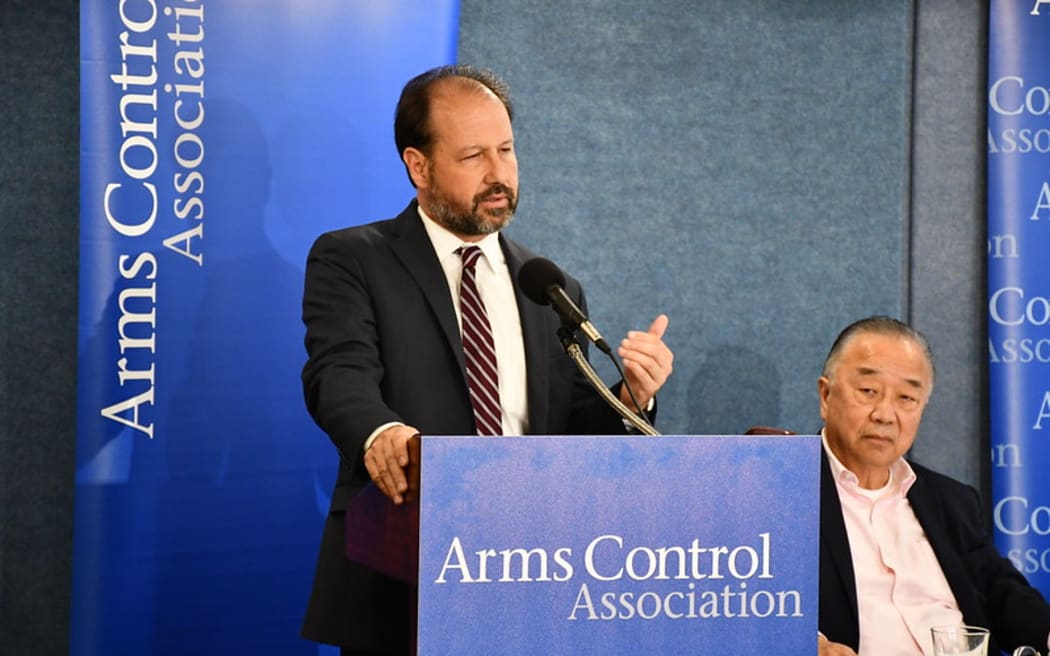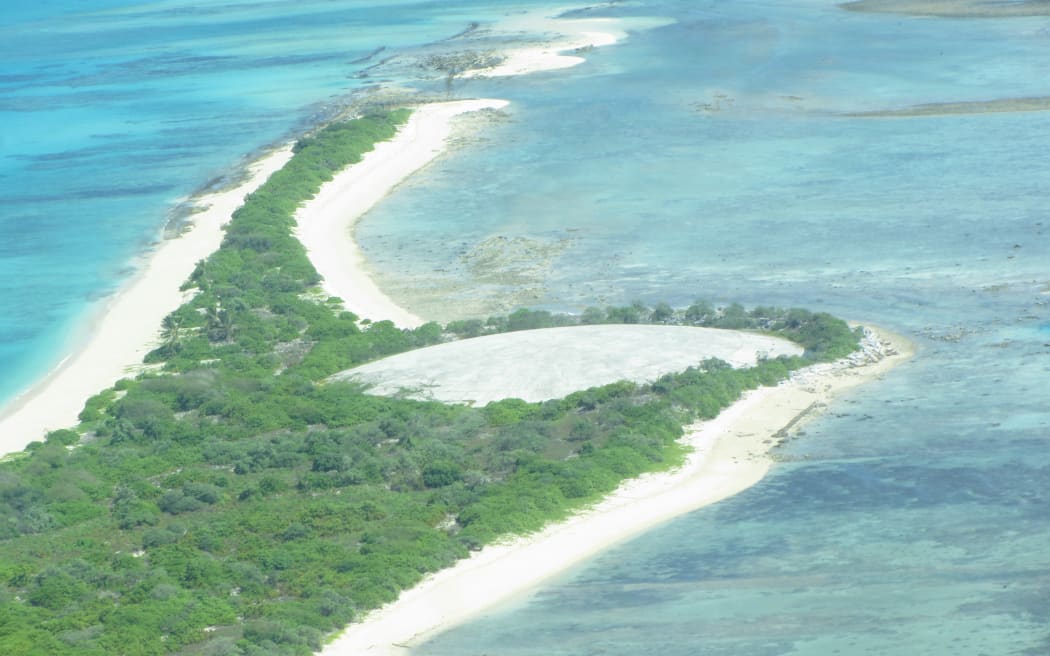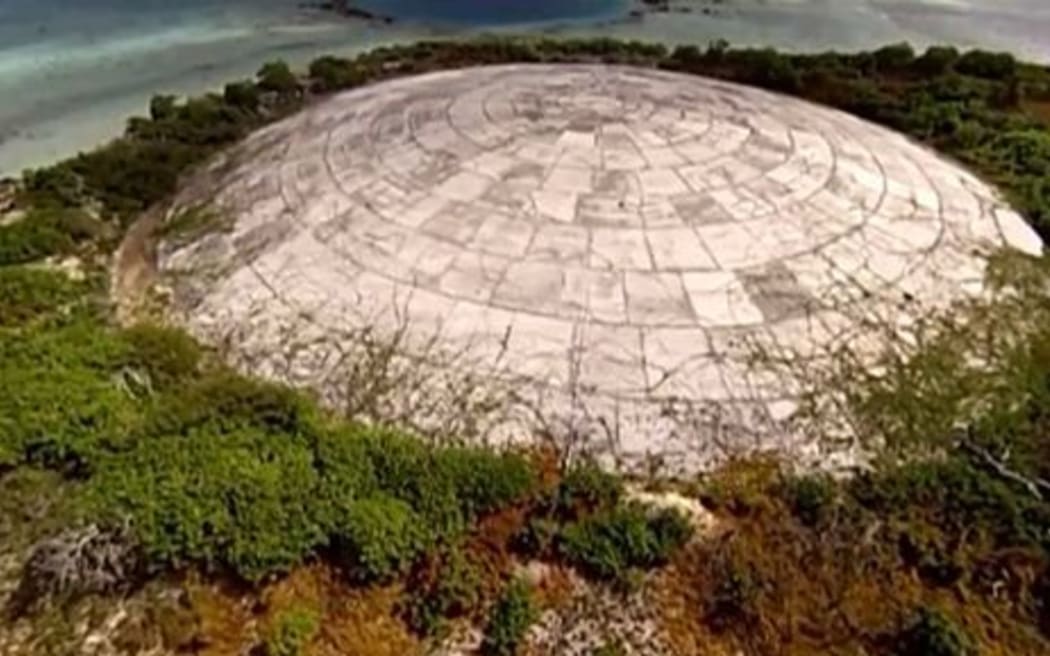By Susana Suisuiki, RNZ Pacific journalist
More than 100 activist groups, including Greenpeace, Veterans for Peace, and the Arms Control Association have signed a letter calling on US President Joe Biden to apologise for nuclear tests conducted in the Marshall Islands.
The letter urges Biden to deliver on promises his administration has made regarding justice for those affected by the tests.
And it said this should be done before the Compact of Free Association with Washington is signed by all parties.
So far, Palau and the Marshall Islands have signed memorandums of understanding that outline the frameworks for what will become their third Compact of Free Association, while the Federated States of Micronesia has yet to sign up.
“The US government clearly has an ongoing moral obligation to help address the adverse impacts of nuclear testing in the Marshall Islands,” the letter states.
“We do not believe that any new Compact of Free Association can be considered fair or equitable without fully addressing these issues in a way that is acceptable to the Marshallese people.”
Between 1946 and 1958, 23 nuclear tests were carried out on Bikini Atoll and forty-four near Enewetak Atoll. The weapons tested had an estimated explosive yield equivalent to one-point-seven times that of the bomb dropped on Hiroshima.
Crippling impact
Executive director Daryl Kimball of the Arms Control Association said the US needs to acknowledge the crippling impact of these tests.
“It’s important to remember the past legacy of US nuclear weapons testing,” he said.

“We feel we have in the United States an enormous debt to pay for the devastating effects of the 67 United States nuclear weapons tests in the Marshall Islands.”
Kimball said the effects of the tests are still present within the Marshallese community today.
“The nuclear testing has led to serious illnesses over time such as radiation poisoning, elevated cancer rates, birth defects, and the contamination of food and water sources continues to this day,” he said.


“One of the islands — Runit Island, where waste from the past nuclear test is contained within a dome — has become completely uninhabitable.
“Many of the islands in the Marshall Islands are still contaminated and some may not be able to be fully restored. We have to remember that these islands are low-lying, they’re being affected by climate change and being battered by a number of different forces.”
Actions called for
The activist groups’ letter states that before the Compact can be renewed a number of actions should be taken including:
- Compensation claims of the Nuclear Claims Tribunal;
- Expanding access to health care, especially for those with illnesses associated with radiation exposure; and
- Prompt declassification of all documents relating to the relocation of displaced Marshallese people.
“When the first compact was signed in 1986 it was not clear the extent of the devastation of the damage,” Kimball said.
“The United States has not been as forthcoming as it needs to be about the information to declassify a lot of the records that were late, and frankly the Marshallese people — because of the economic hardships created in large part by the history of the testing — they themselves don’t have the technical capacity to deal with these issues and so we see these issues persisting.
“New efforts need to be taken, additional resources need to be provided to recompense for the damage to health, culture and the economy.”
Kimball said that an apology could not make up for the lives lost and the damage created by the nuclear tests, but “it’s the right thing to do”, he said.
“It would recognise the wrongs that were committed and teach future generations that these wrongs can never be and should never be created.”
This article is republished under a community partnership agreement with RNZ.
Article by AsiaPacificReport.nz






